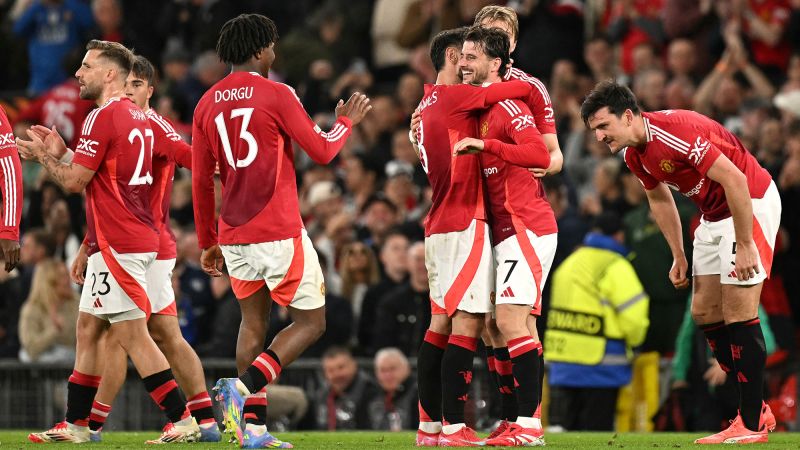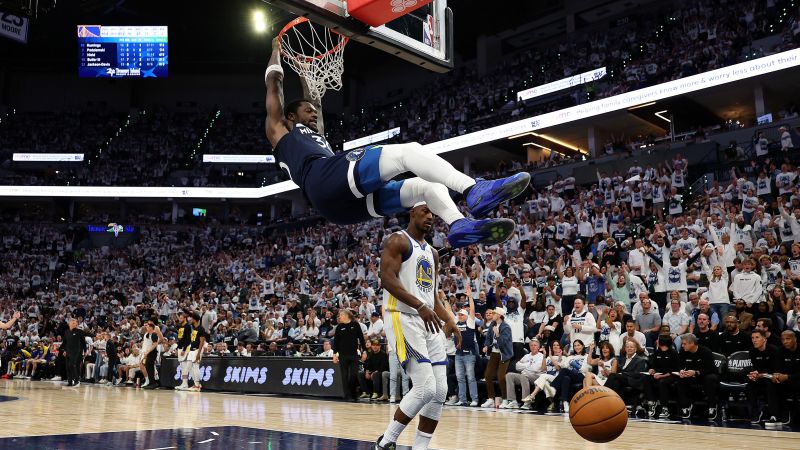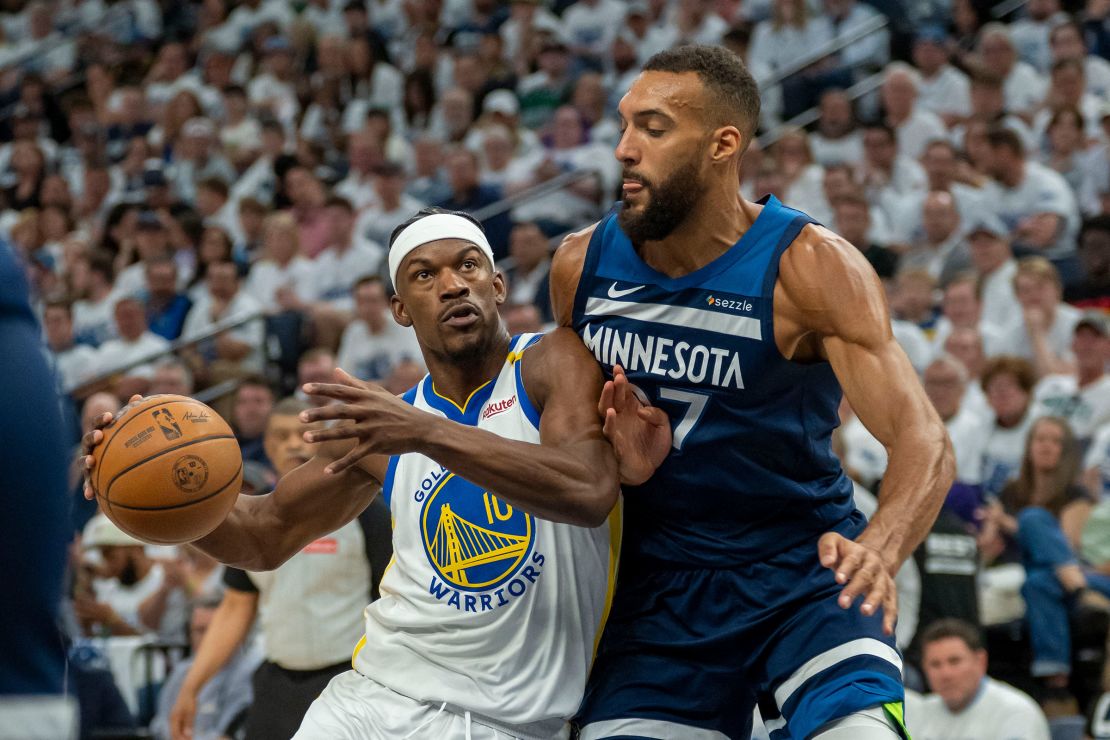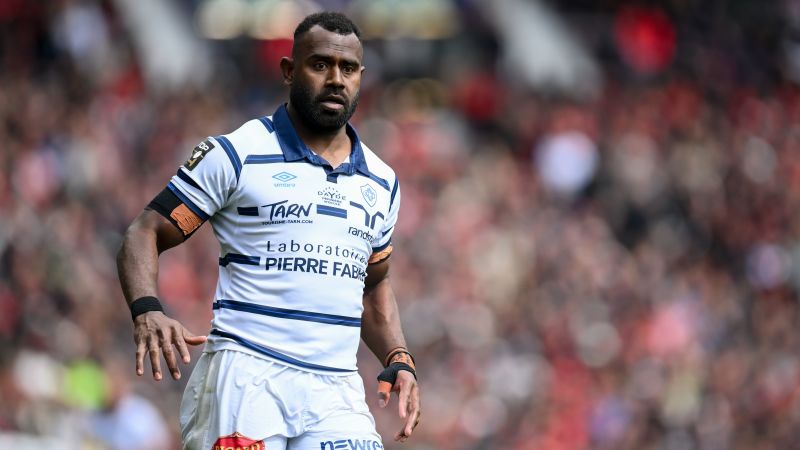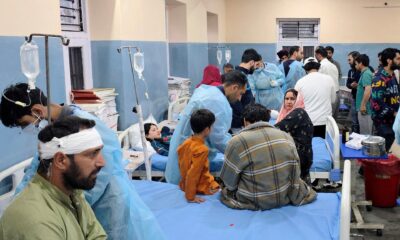CNN
—
Motorcycle racing is dangerous, of that there is no doubt. But within the sport there is one category that sits (bruised) head and (fractured) shoulders above the others.
Supercross is a spectacular form of dirt-bike racing played out in stadiums, with wild jumps, eye-widening speeds and battling competition.
Few riders embody the sport and its elements more than Austin Forkner, the most successful rider in the 250SX class never to win a title. The Missouri native has come close, but painful on-track mishaps have always gotten in the way.
With its speed, acrobatics and general entertainment factor, Forkner tells CNN Sports that no sport has the blend of ingredients that Supercross offers: “It’s got the technicality of golf, we’re playing with inches out there.
“It’s got the brutalness or gnarliness of fighting, like UFC fighting … then it’s got the physicality of, like, a triathlete. You have to be in such good shape, you have to be ready to be injured and ready to go to war, basically.”
Talking to CNN at Triumph Racing America’s headquarters in picturesque countryside south of Atlanta, Georgia, the 26-year-old begins to list the injuries he has sustained in the saddle, gesturing to different parts of his body.
“I’ll just go through them. I’ve done this collarbone three times, this collarbone twice; I broke this wrist, I broke my hip, my hip socket, I guess. Let’s see – when I was young, I broke my ankle and the growth plate …”
It’s completely understandable that Forkner would have to think about it because this list goes on and on … and on. Far more broken bones and smashed body parts, in fact, than there is space here to list: “I’ve torn my ACL, or torn everything in my knee, basically, my right knee twice, my left knee once.
“I’ve torn my labrum in my shoulder twice, tore it, then retore it again. I actually had four surgeries on this shoulder within, like, 18 months, from two collarbones and two labrums. I compression-fractured my back a few years ago … and I rode with it because I didn’t know that it was compression-fractured.”
These are still just some of the injuries this extraordinary competitor has overcome in his career. It takes Forkner almost three minutes to relay all of them; he has even had part of his pancreas removed, along with his spleen.
But the most serious setback was not directly related to racing at all. In fact, were it not for the fact that the rider was being examined after a bad crash, it might never have been discovered.
“Last year, after the crash where I broke my back and my shoulder and I was knocked out for like five minutes, they were doing scans on my head and they found out that I had something called an AVM (arteriovenous malformation),” Forkner explains. “And I actually had to have brain surgery to have that taken out.”
AVM is a tangle of blood vessels that typically forms during fetal development and leads to irregular connections between arteries and veins in the brain. While many people born with AVMs live normal lives without even noticing, such malformations can be dangerous, even fatal if left untreated.
Forkner admits that it was a shock to find out brain surgery was needed.
“Even though I’ve done everything – I’ve done knees, shoulders, collarbones, wrists, ankles, everything like that, back,” he tells CNN, “it’s kind of two things you don’t really think about having surgery on: that’s your heart and your brain.”
The surgery itself, while relatively routine, was an intimidating prospect.
“They cut me from here to here, basically,” Forkner explains, gesturing across his hairline. “(They) had to essentially kind of pull the front part of my brain out of my skull a little bit so they could get down to what they were trying to do.”
The other troubling aspect of the surgery was the recovery, he says.
“I honestly didn’t really know what that meant for my career, just because, like all the other injuries, you’ll be back in, whatever, ACL, six months, any broken bone, six to eight weeks, you know, they kind of can give you a time frame,” Forkner continues.
“This was kind of, ‘We don’t know.’ So, it was pretty scary in that way, but not speaking anything about (my career), it was just scary. It was just scary to have my brain opened up, basically.”
After the event, though, perhaps unsurprisingly given the rider’s track record of recovering from injuries, Forkner’s path back into the saddle was relatively smooth and swift.
“If I could have (gone) to the gym two weeks after, I probably would have (gone) to the gym two weeks after,” he smiles. “I was basically limited because the doctor didn’t want me to get my heart rate up, get the blood really flowing through there. He was like, ‘We need to be chill, because part of it is that the AVM can cause seizures, strokes, and aneurysms.”
Not long after his return to fitness, however, Forkner made a big decision, uprooting from California, where he’d spent most of his career, and leaving his Kawasaki team to move to Georgia and join the relative newcomers to dirt bike racing, Triumph.
But the Richards, Missouri-born rider was actually quite happy to leave California behind. “It was a big change coming from California all the way out here. I like Georgia way better than California.
“It has the Midwest kind of small towns, you know, we’re out here, this reminds me exactly of the Midwest where I grew up, ponds and green grass. I’m way more at home here than I was in California.”
The move also meant adapting to a completely new bike: “I don’t think you can understand exactly how much work goes into setting the bike up. The best way that I can explain it to somebody is that the forks or the front suspension on my bike, if they move that 0.5 millimeter, I feel it.
“Let’s say there’s 10 to 12 turns on the track; if the bike turns better or doesn’t in certain sections, that could be a 10th of a second per turn. Ten turns, that’s a second a lap. A second a lap is a lot.”
Jeremy Coker, general manager of Triumph Racing America, gushes about Forkner’s talent, but acknowledges that his team was taking a risk of its own bringing him on board.
“Austin Forkner has a one-of-a-kind talent. I think if you were to ask any rider, any competitor that he races with, they’re going to say that he’s probably the most talented and fastest rider there is,” he tells CNN.
“I think all of the injuries that he sustained, especially his brain injury, was a big setback for him,” Coker continues. “I think at that point that not only were people scared to hire him in the fact that maybe he’s not going to be as fast as he once was.
“But also, the scare factor of – is this dangerous? Is this a risk that we’re willing to take? If he crashes, can he sustain a worse injury? Could it … as far as you know, kill him? I don’t mean to say it like that, but it’s a big risk. It’s something that’s scary.”
Undoubtedly the biggest change of all for Forkner, however, came when he and his wife – model and influencer Rylee Forkner – celebrated the arrival of their son, Atlas Hope, in March of this year.
Fatherhood and a new perspective
The rider admits that fatherhood has already changed him.
“I love my little boy more than anything else. It’s funny because everybody says it, it changes … your riding and stuff like that, and it changed it as far as I realized that yes, dirt bikes are my job, they’re my living,” Forkner says, “but for so long dirt bikes have been the only thing. They’ve been the most important thing. They’ve been all I think about when I wake up and all I think about when I go to bed, and now they’re not.
“Now (racing is) important because it’s my job, but whether I have a good day at the track or a bad day at the track and I go home and I can hold my little boy, it doesn’t matter – it makes it not matter.
“It takes the added pressure that I put on myself off because I’m just like, ‘Hey, whether I win, whether I get last, I get to go home and hold my boy and everything’s gonna be OK.’”
He also concedes that his new responsibilities are on his mind at the track: “That is something that has been a little bit of a battle this year, fighting the, ‘I need to go home. I need to be safe for my wife and my kid.’
“But then at the same time, you can’t ride with that lingering over you. Because you won’t ride loose and ride natural when you have something like that, telling yourself, ‘Be careful, you can’t ride like that’ – so it’s a process.”
Perhaps though, the most revealing thing about being a father was the new insight into his relationship with his own parents.
“Honestly, one of the biggest things about having a kid now is that it puts into perspective a lot my parents and what they’ve had to deal with, with me, just as far as how upset it makes you,” Forkner says.
“If you’ve ever seen my mom at a race, she’s a disaster to watch a race with, she’s freaking out, grabbing somebody, but I understand that now, I understand that side of things, like how upset it must make her to see me go through – to see me just get beat down over and over again. I understand what that could do to you as a mother.”
Would he encourage his son Atlas Hope to follow in his footsteps?
“I’m gonna be hard pressed to tell him no,” Forkner smiles, “as far as if I’m gonna advise him to become a professional dirt bike rider. I don’t know if I would, I’m probably gonna advise against it.
“In certain ways I can get a little bit bitter about the sport. Well yes, it’s given me a great life and I met all my friends, my wife, everybody that I know I’ve met through dirt bikes basically, but I’ve also seen a lot of the dark side of the sport.
“But a lot of that has come from professional dirt bike racing where we are pushing the limits every single day, and that’s hard and that’s stressful, so am I gonna tell him he can’t ever touch a dirt bike? No. But I would prefer if we just do it for fun.”


